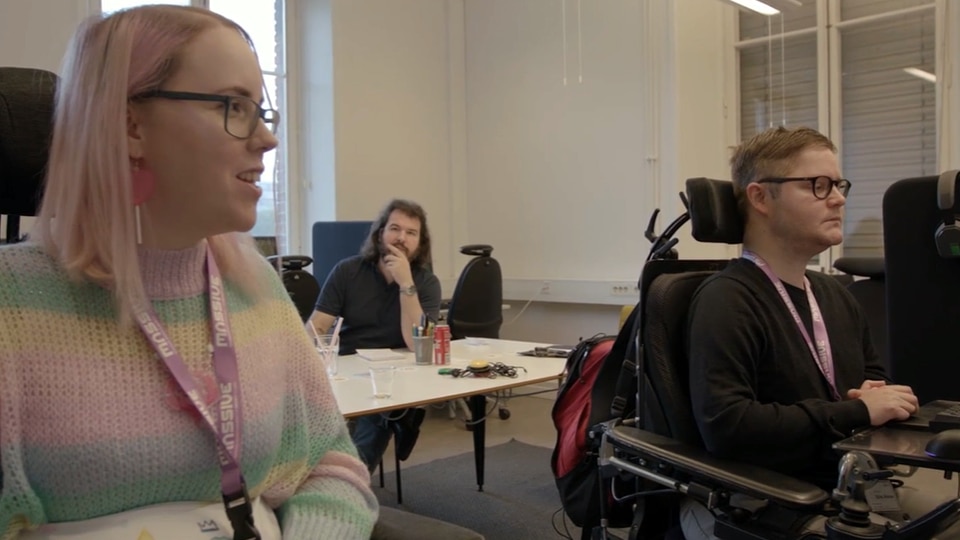For this year’s Global Accessibility Awareness Day, some of Ubisoft’s experts and partners have come together to talk about Ubisoft’s philosophy and latest achievements regarding accessibility in our games.
The speakers featured in this video are:
- Cherry Thompson, Project Manager, Accessibility at Ubisoft
- Raashi Sika, VP Global Diversity & Inclusion at Ubisoft
- Chris Robinson, aka DeafGamersTV, a Deaf gamer, accessibility advocate, and consultant
- Clint Hocking, Creative Director on Watch Dogs: Legion at Ubisoft Toronto
- Jonathan Bédard, UX Director on Immortals Fenyx Rising at Ubisoft Québec
- Maïmouna Brownrigg, Graphic Team Lead on Assassin’s Creed Valhalla at Ubisoft Montreal
In line with Ubisoft’s goal to create worlds that enrich the lives of all players, our teams are committed to make games that are inclusive and accessible to as many people as possible. Part of game design involves intentionally placing a series of carefully constructed interaction barriers in front of players to challenge and excite them. However, accessibility is about removing the unintentional barriers that prevent players from getting the most out of these experiences, or even from playing them altogether. High-quality subtitles, control remapping, and visualized sound effects are a few examples of solutions that eliminate unintentional barriers.
Realizing the need to remove unintentional barriers in Ubisoft’s games, David Tisserand, Senior Manager of Ubisoft’s Accessibility team, started a taskforce in 2018 to push the topic of accessibility across all studios. His aim was to make Ubisoft productions meet basic accessibility standards by 2020, and this initiative so far has resulted in accessibility advancements in several games, as well as the release of Ubisoft’s most accessible lineup to date in the fall of 2020. However, these achievements were the result of a much bigger journey. Today, making our games accessible has become a global effort, and it’s a focus that teams integrate early on in productions, although there is still a lot more work to do to continue to improve accessibility.
“We’ve come a long way as a company since the original taskforce, and today we can proudly say that accessibility is becoming a standard at Ubisoft,” Tisserand said. “I’m delighted to see the impact of our efforts when I see more players enjoying our games. But it’s also humbling to look at the journey we have ahead of us to truly invite everyone into our worlds.”
In order to better identify and dismantle unintentional barriers, teams make a point of involving the community throughout the development of our games by, for example, organizing workshops to meet with players and accessibility consultants, learn from them, and work on finding ways to improve the experience for as many players as possible.
Thanks to these collaborations, Ubisoft games now offer a growing array of options to help players make the most of their experiences. While our teams have achieved some important milestones in terms of accessibility, there is still a long way to go to ensure the player experience is accessible and inclusive from end to end – and that accessibility goes beyond our games to become an inherent part of all aspects of our business, including events, marketing materials, and our website and distribution platforms.
Ubisoft is committed to continue listening to the community and learning from their experiences to deepen our teams’ understanding of how to best improve accessibility. By making accessibility an increasingly central part of our processes, in time we will get closer to our biggest goal: accessibility by design.
To learn more about the work of Ubisoft’s accessibility team, listen to this interview with Cherry Thompson (in English), part of Ubisoft’s Game Makers podcast.
From control-remapping to menu navigation, head-up display adjustments, and puzzle assists, take a deep dive into the accessible design innovations in some of our latest releases: Assassin’s Creed Valhalla, Immortals Fenyx Rising, and Watch Dogs: Legion.



